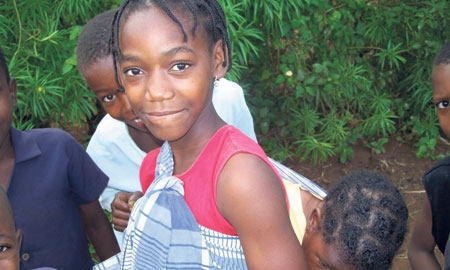“Women are a priority, without a doubt,” affirms Prime Minister Alberto Clementino A. Vaquina. “Our government has a framework in place called the ‘Programme for the Liberation of Women’ which defines liberating women not as an ‘act of charity, but rather a duty’.”
It is this sense of duty that led to the creation of a special fund, which backs prizes for girls who study hard, and another programme called the Adult Education Fund, which provides education opportunities for women.
“In those schools, there is an obligation for the teachers to give special attention to female students, so they won’t quit studying,” says Filipe Chimoio Paúnde, General Secretary of the Incumbent Mozambique Liberation Front (Frelimo).
The programmes are producing results. According to the United Nations Development Programme (UNDP), Mozambique is on course to achieve a ratio of almost one girl for each boy in primary school by the year 2015, and already in Inhambane and Gaza girls outnumber boys. It also states that female illiteracy is falling, from 66.2 per cent in 2004 to 56 per cent in 2009.
But Mozambique’s success is not limited to education. “The engine of this country is the women. We have female governors and ministers who are our best examples,” Mr Paúnde points out. In fact, female representation in Mozambique’s parliament rose from 28 per cent in 2003 to 39.2 per cent in 2010, placing it among the highest in Africa.
The Prime Minister says, “Our public markets are dominated by women, and there are places such as the Nampula Province where women do the banking with weekly or monthly contributions to buy necessary housing goods that benefit all.”
In a country where natural reserves are key to economic vitality, women are proving to be Mozambique’s greatest resource. Mr Paúnde couldn’t agree more: “The future of this country depends on them.” “Women are a priority, without a doubt,” affirms Prime Minister Alberto Clementino A. Vaquina. “Our government has a framework in place called the ‘Programme for the Liberation of Women’ which defines liberating women not as an ‘act of charity, but rather a duty’.”
It is this sense of duty that led to the creation of a special fund, which backs prizes for girls who study hard, and another programme called the Adult Education Fund, which provides education opportunities for women.
“In those schools, there is an obligation for the teachers to give special attention to female students, so they won’t quit studying,” says Filipe Chimoio Paúnde, General Secretary of the Incumbent Mozambique Liberation Front (Frelimo).
The programmes are producing results. According to the United Nations Development Programme (UNDP), Mozambique is on course to achieve a ratio of almost one girl for each boy in primary school by the year 2015, and already in Inhambane and Gaza girls outnumber boys. It also states that female illiteracy is falling, from 66.2 per cent in 2004 to 56 per cent in 2009.
But Mozambique’s success is not limited to education. “The engine of this country is the women. We have female governors and ministers who are our best examples,” Mr Paúnde points out. In fact, female representation in Mozambique’s parliament rose from 28 per cent in 2003 to 39.2 per cent in 2010, placing it among the highest in Africa.
The Prime Minister says, “Our public markets are dominated by women, and there are places such as the Nampula Province where women do the banking with weekly or monthly contributions to buy necessary housing goods that benefit all.”
In a country where natural reserves are key to economic vitality, women are proving to be Mozambique’s greatest resource. Mr Paúnde couldn’t agree more: “The future of this country depends on them.”

0 COMMENTS